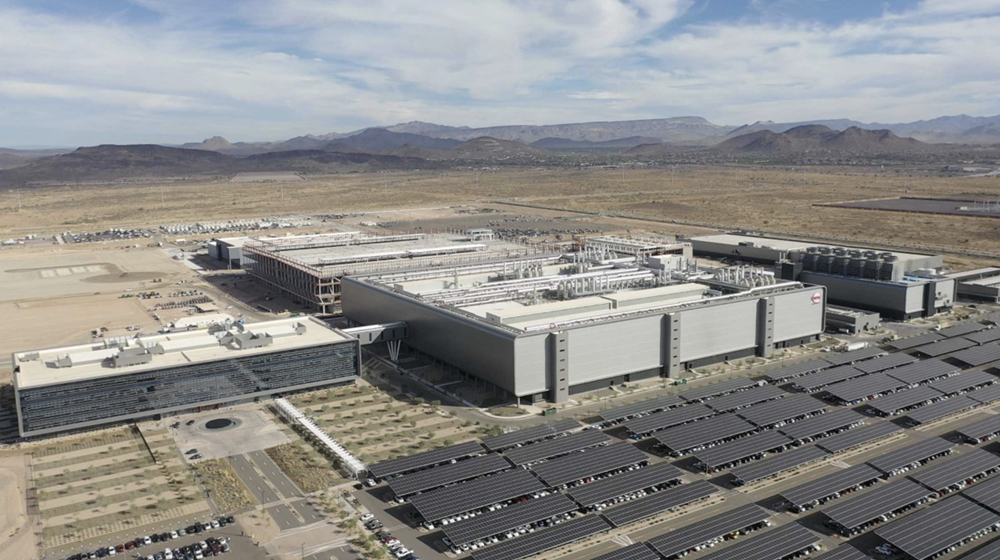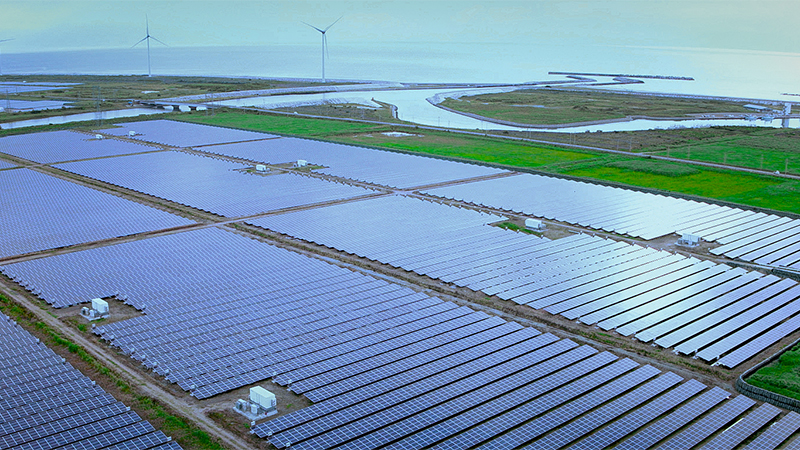Fab 21 Becomes Part of SCOA Semiconductor Strategy in Arizona
How Is TSMC’s Copy Strategy the Key to High Yields and Rapid Success at their Facility?
According to KPMG's Global Semiconductor Industry Outlook, the global semiconductor market is projected to surpass $1 trillion by 2030, driven by innovations in artificial intelligence, automotive technologies, and consumer electronics. At the heart of this transformation is Taiwan Semiconductor Manufacturing Company’s (TSMC) Fab 21, a cutting-edge facility in Arizona. This “fab,” short for fabrication plant, manufactures semiconductors, the miniscule but powerful computer chips that are the "brains" of modern technology, enabling devices from smartphones to electric vehicles to do their job. SCOA’s strategic involvement with Fab 21 highlights its role as a leader in this highly competitive and essential industry.
“SCOA’s strategy within the semiconductor landscape is exemplified by having a strong working relationship with Sumitronics Taiwan, a subsidiary of Sumitomo Corporation,” said Rafael Ascencio, Account Manager for SCOA’s Electronics and Functional Materials Department. “STX works closely with TSMC headquarters, and this has given SCOA valuable credibility in selling directly to Fab 21 in Arizona.” This collaboration has been instrumental in ensuring Fab 21’s swift integration into the global semiconductor supply chain.
A major factor in Fab 21’s success is TSMC’s “copy strategy,” a system designed to standardize production and maintain high quality and efficiency. “TSMC’s copy strategy is an internal practice which was implemented early on in Taiwan. It allows TSMC to ramp up new fabs faster because all initial products will have a baseline which employees use to track the performance of a new fab,” explained Ascencio.

This strategy enables new facilities like Fab 21 to use proven methods from Fab 18, a leading facility in Taiwan, as a guide for their own processes. Ascencio noted, “Many Taiwanese-based TSMC employees have relocated to Fab 21 because of their expertise in the field. It has been reported that Fab 21 yields rival Fab 18. This is a rather big deal to Fab 21 employees and the achievement would not be possible without TSMC’s copy strategy.”
In semiconductor manufacturing, “yields” refer to the percentage of chips on a wafer that function correctly. Higher yields mean more successful chips are produced, which significantly improves efficiency and reduces costs. TSMC’s copy strategy ensures that Fab 21 can achieve high yields by minimizing startup challenges and adopting the best practices from its Taiwanese counterpart, setting it up for rapid success and exceptional performance.
The facility’s impact extends well beyond its technological achievements. “The impact for Phoenix is drastic,” Ascencio noted. “Residential and commercial developments near Fab 21 are visibly noticeable. TSMC has also been working with local community colleges and many universities on preparing students for required skills needed to apply for Fab 21 job openings. The impact to Los Angeles is related to the increase of imports that move through LAX and the Port of Long Beach.” Fab 21 not only produces advanced semiconductors but also fuels economic growth through job creation and increased logistical activity.
Sumitomo Chemical and Fujibo provide vital materials like photoresist and CMP pads—essential for shaping and polishing the chips during production. “Their high purity and advanced products have been approved and consumed by TSMC Taiwan’s fab, which is the mother fab of Fab 21 in Arizona,” said Mikito Suzuki, Director of Electronics and Functional Materials Department. “Our goal is to provide our customer with [an] equal level of service which our affiliates have been providing to TSMC Taiwan. Advantages would be production, process, and quality management (control and consistency).” These materials ensure that chips meet rigorous precision and reliability standards, crucial for high-performance applications like processors and memory devices.
Looking ahead, Fab 21 is set to achieve full-scale production of Phase 1 by late 2025, with Phase 2 operations expected shortly after. Suzuki shared SCOA’s vision for the facility’s future: “We will fully utilize our position with Fab 21 to increase material we trade for them to maximize our return. We are currently working on [two] new products which can be delivered to Fab 21 on top of [two] products we currently deliver to them. Also, investigate opportunities in local sourced materials and recycling of spent chemicals.”
Fab 21 embodies SCOA’s commitment to advancing technology through collaboration and strategic foresight. By aligning with TSMC’s expertise and leveraging its own integrated corporate strengths, SCOA is helping shape the future of semiconductor innovation, ensuring that the technologies powering tomorrow’s devices are built on a foundation of precision and excellence.



